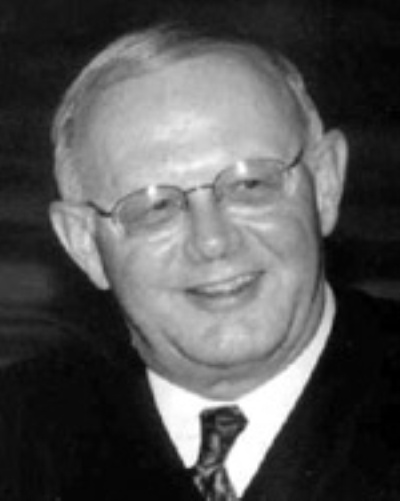News Item
Stearns Drug Court Celebrates 5th Anniversary
Posted: Friday, July 27, 2007
One of Minnesota’s early forays into what have become known as “problem-solving courts” began in St. Cloud five years ago when court leaders concluded that traditional methods of dealing with drug and alcohol related offenses was too costly and unproductive. The Stearns County Drug Court celebrated its fifth anniversary July 13, recognizing past graduates and the three judges who have presided over the court.
“More than five years ago, when many people in the justice system were still skeptical about whether this approach would work, Judge (Bernard) Boland saw the need for a new way of handling cases involving drug and alcohol addicted defendants,” said Chief Justice Russell Anderson. “He had a vision that we could do better than simply sending these people off to jail and waiting for them to show up again in our courtrooms, as they usually did.”
“As the years went by, and the evidence and the success stories piled up, many of us came to believe that Judge Boland and others like him were right,” said Anderson. “That using the leverage courts have over defendants, and working collaboratively with prosecutors, probation, social workers and other justice system partners, we could help many addicted defendants undergo treatment and begin the journey back to a sober, responsible, productive, and most importantly, law-abiding life.”

Judge Bernard Boland (Retired)
Judge Boland, who is now retired and who many at the ceremony praised for his leadership in creating the drug court, said “I want to salute everyone who has made that journey of the past five years, because everyone who has traveled the rode to sobriety thought this court has made it possible for others to do the same.”
“Your success has made it possible to sustain this program and for others to change their lives.”
Boland went on to say that “The evolution of public policy from punishment to prevention, and from a war on drug users to a war on the human misery caused by addiction, is brought closer by every graduate of this program and every program like it.”
“From a personal standpoint, my association with the drug court was the most important event in my professional career,” Boland said. “Nothing has brought me more satisfaction, nothing has made me appreciate the human spirit more, and nothing has given me more hope. I thank you for that.”
The Drug Court’s first graduate, Barb Klein, coordinator Brigid Murphy and former and present drug court judges Paul Widick and Skipper Pearson also spoke at the event.
This week the Judicial Council announced that $5 million has been made available to continue existing drug court programs and to begin several new ones. The funding, which are being provided through the Judicial Branch and the Minnesota Department of Public Safety, is a combination of legislative appropriations and federal grants.
- 30 -